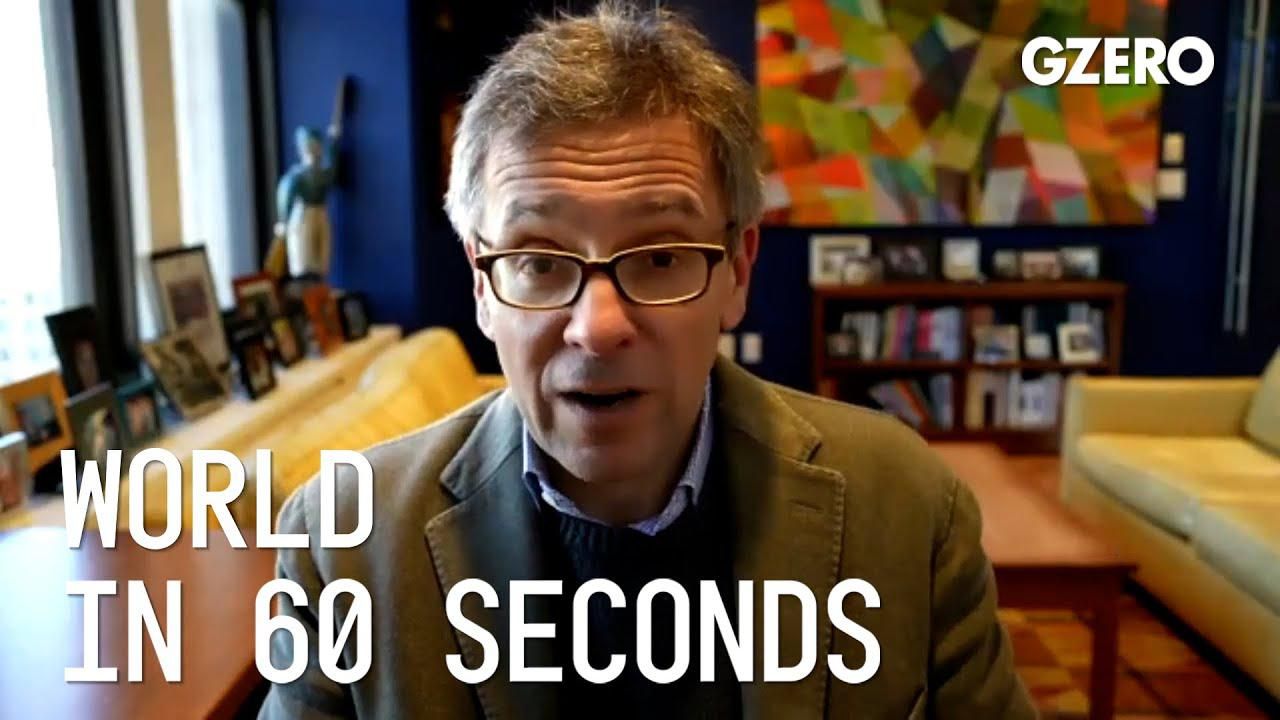Ian Bremmer shares his insights on global politics this week with a look at Peng Shuai's public appearance, El Salvador's "Bitcoin City," and Americans' Thanksgiving celebrations.
Why has China silenced its famous tennis player, Peng Shuai?
Well, they haven't completely silenced her in the sense that the head of the IOC, the International Olympic Committee with Beijing Olympics coming up, basically told the Chinese government, "hey, what is the absolute minimum that you can do so that we can get Beijing Olympics back on track?" And they did the absolute minimum, which was a half an hour phone call with her that felt like kind of a hostage phone call. But nonetheless, she says that she is fine and is private and doesn't want to talk about the fact that she had accused the former Vice Premier of sexually assaulting her. That is a fairly heady charge. It was clear, going to get a lot of headlines in the run-up to the Olympics. And she wasn't heard from after that. So big problem for the Chinese in the run-up to the Olympics.
What's the deal with the planned "Bitcoin City" in El Salvador?
Where they announced they're going to have this city, that's going to be financed by Bitcoin and it's going to be powered by a volcano and that's how they're going to do the mining in El Salvador. The first country in the world that is moving towards Bitcoin as currency, because they want to get away from their peg to the dollar. And because they're having a problem with the ability to get any more money from the IMF. It's hugely popular. This President, Bukele who has about 90% approval, young guy, kind of a tech bro, calls himself CEO of El Salvador, as opposed to President, whatever. This is really just a bet on Bitcoin. He is literally betting the future of the country on the notion that Bitcoin is going to go to the moon. And we all know that's not true, that's Dogecoin, right? But anyway, I wouldn't be playing casino with my national bank reserves, but I'm not CEO of El Salvador. So let's see how that works out for him.
It's Thanksgiving week in the US this week. This year, what should Americans be thankful for?
How about those of us that ordered turkey early? Huh? Yeah. Be thankful about that. Because we got those turkeys. When the people that didn't get their act together, they're going to get stupid scrawny turkey. You're going to get pork. You're going to get lamb. It's going to be horrible. But hey, we're with family, with friends, we're getting through COVID and I'm glad we're all here.
- Biden's turkey fail - GZERO Media ›
- What We're Watching: Chinese tennis star reappears, Bulgarian ... ›
- Would athletes be exempt from a Beijing 2022 Olympics boycott ... ›
- Will the US and other Western countries really boycott the Beijing ... ›
- El Salvador's millennial president bets on Bitcoin - GZERO Media ›
- Hard Numbers: El Salvador's Bitcoin city, British Columbia's deadly ... ›
More For You
People in support of former South Korean President Yoon Suk Yeol rally near Seoul Central District Court in Seoul on Feb. 19, 2026. The court sentenced him to life imprisonment the same day for leading an insurrection with his short-lived declaration of martial law in December 2024.
65: The age of former South Korean President Yoon Suk Yeol, who was sentenced to life in prison on Thursday after being found guilty of plotting an insurrection when he declared martial law in 2024.
Most Popular
In an era when geopolitics can feel overwhelming and remote, sometimes the best messengers are made of felt and foam.
The Hungarian election is off to the races, and nationalist Prime Minister Viktor Orbán is facing his most serious challenger in 16 years.
Does skepticism rule the day in politics? Public opinion data collected as part of the Munich Security Conference’s annual report found that large shares of respondents in G7 and several BRICS countries believed their governments’ policies would leave future generations worse off.
